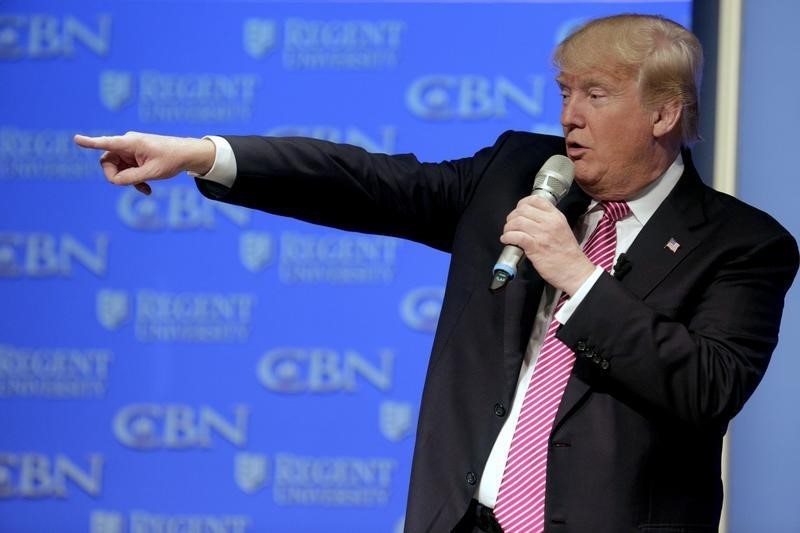Investing.com’s stocks of the week
Investing.com - President Donald J. Trump will repeal as many as five Obama administration executive orders, including a tax on carbon emissions, imposed through regulation, on his first day in office, according to transition team spokesman Sean Spicer.
Spicer explained to journalists in a briefing that the new president would repeal the old, constitutionally questionable orders with new excutive orders almost immediately after he is sworn-in by Supreme Court Chief Justice John Roberts on Friday.
That's just the warm-up exercise, however.
As many as 200 executive orders, and other regulations, signed by outgoing President Barack Obama, will likely be repealed within the new president's first full week in office, starting next Monday, 23 January, according to media reports in the U.S.
The executive orders most likely to be repealed and replaced are, according to analysts, as follows:
* Obama's so-called "clean power plan" orders, which were drafted when his place to impose a carbon tax on U.S. industry did not make it through Congress in 2009. Trump can direct the Environmental Protection Agency (EPA) to scuttle the implementing regulations, which have been harmful to energy producers, like coal companies.
* Reimposition of sanctions on the rogue Islamic state Iran, which were removed by Obama without Congressional approval in 2016.
* Repeal of amnesty for illegal aliens, imposed by executive order by President Obama, when Congress would not pass a bill granting a path to quick citizenship of illegals.
Under the U.S. Constitution, Congress passes laws, and presidents are charged with faithfully executing those laws. Presidents going back to George Washington have issued executive orders for domestic matters, but they are generally aimed at implementing policies already passed by the Congress, not creating new domestic policies without Congressional debate. Executive order are administrative law -- and are a form of regulation, not a statutory measure.
Presidents have more leeway with foreign policy than with domestic policy, and can issue executive orders, know as National Security Memoranda, on any foreign policy or national security matter short of declaring war, under constiutional rules in the U.S.
